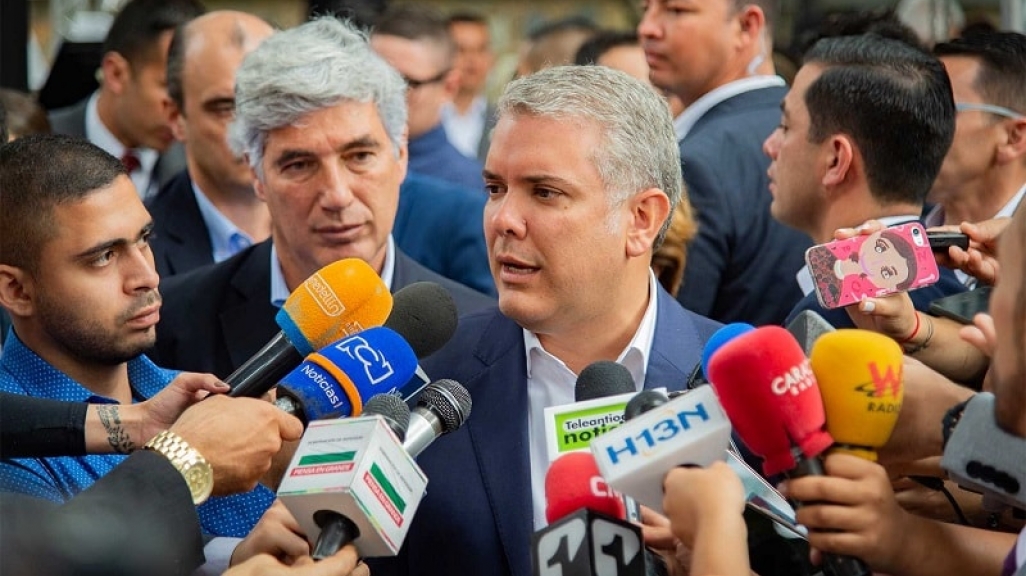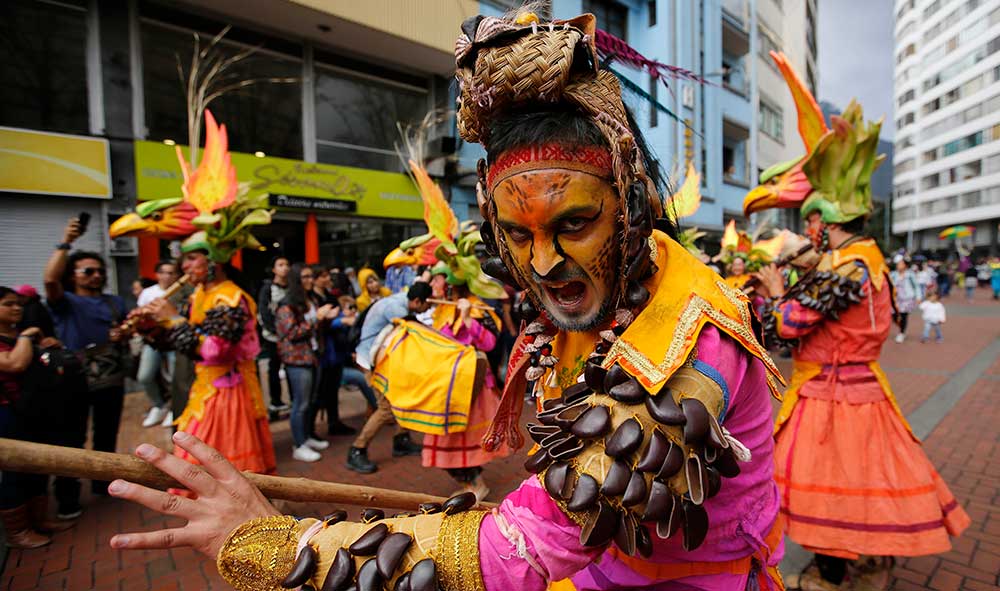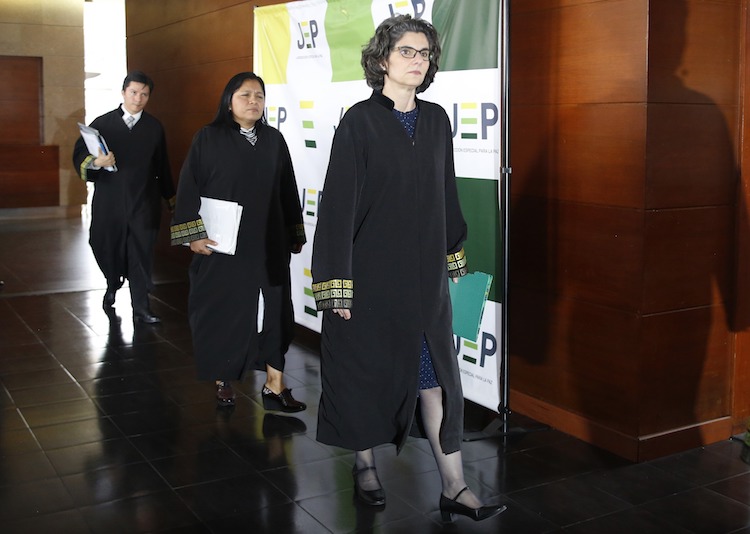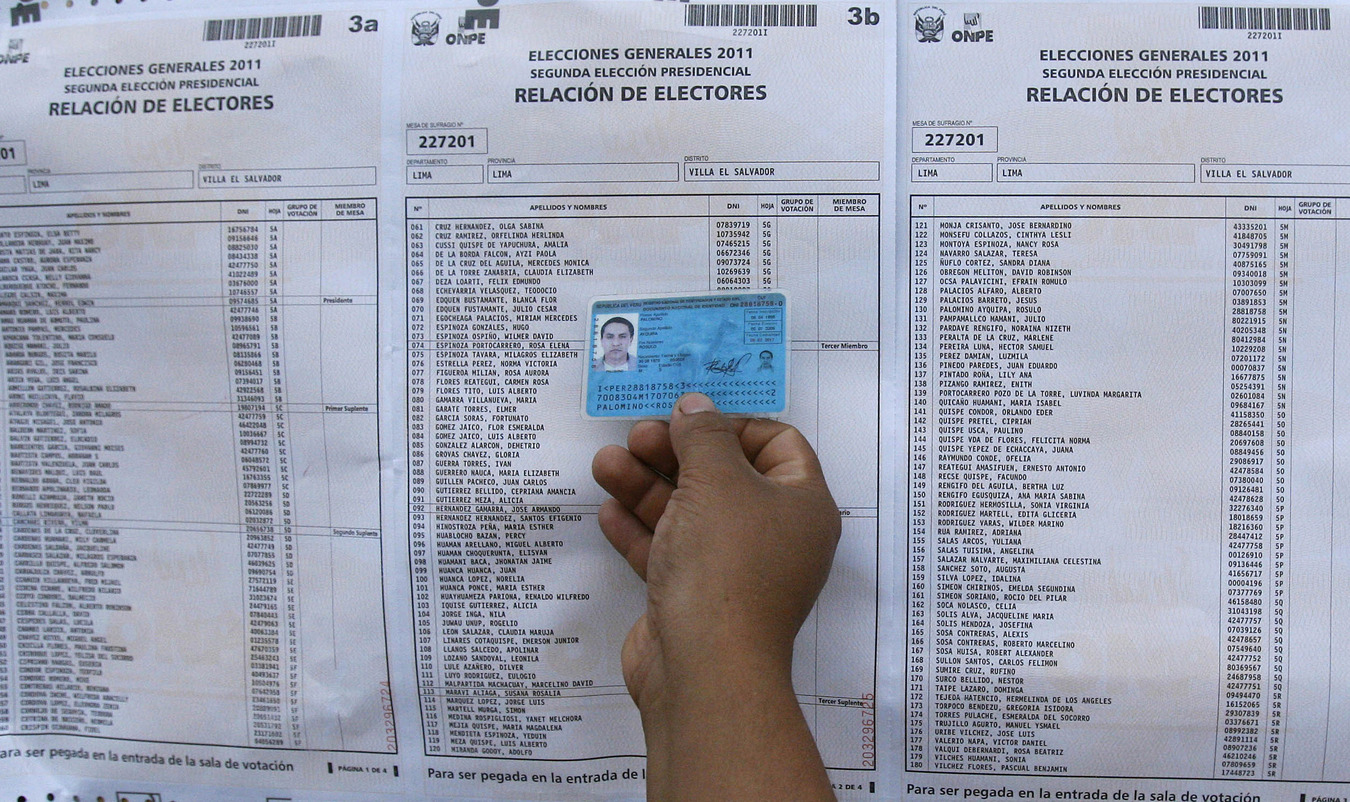Colombia's Iván Duque Marks One Year in Office
Colombia's Iván Duque Marks One Year in Office
His first year was no cakewalk, given congressional roadblocks and turbulent Washington ties. But there are bright spots as well. AS/COA Online takes a look.
Colombian President Iván Duque marked one year in office on August 7. The president, who turned 43 at the beginning of the month, didn’t get much of a honeymoon period during his first year as he fended challenges from all sides—even from within his own party. In July, his approval rating sat at around 37 percent, down six points from February, but nonetheless higher than his nadir of 27 percent in November 2018. Meanwhile, the Colombian peso hit an all-time low against the U.S. dollar on August 5. Just last week, thousands of Colombians took part in marches across the country in protest of the killings of hundreds of human rights defenders in the last few years, as well as the Duque administration’s relative inaction on the issue.
AS/COA Online explores some of the issues that have defined Duque’s first year in office.
Leadership amid the Venezuelan crisis
At a time when nativist sentiments are increasing across the globe, Duque’s government is welcoming Venezuelan migrants in both public statements and public policy. Colombia has taken in the greatest number of migrants—which is estimated to reach 2 million by the end of 2019 in a country of 48 million—of any country, while Bogotá stands as the de facto home base for those lobbying for control of Caracas.
Moreover, while countries like Peru and Ecuador have tightened migration requirements for Venezuelans in recent months, Colombia still does not require Venezuelans to have a visa to enter the country. On August 5, Duque signed a decree that granted citizenship to 24,000 children born to Venezuelan parents in Colombia since 2015. “Today we can say, amid difficulties, that the way of xenophobia is not the right way,” said Duque at the August 5 signing event.
Congressional roadblocks
On paper, Duque came into the office with what appeared to be a clear mandate. He won Colombia’s presidential runoff against leftist Gustavo Petro in 2018 by a comfortable 12-point margin. His party, Democratic Center (CD), was the largest single party in Congress and held the Senate presidency.
Still, the president’s relationship with the legislature is challenging at best. For one, he doesn’t command the support of his own party, which is led by ex-President and current Senator Álvaro Uribe. Though Uribe’s support of Duque helped the latter cruise to victory, the two have been out of sync since Duque came into office, differing on issues such as a tax plan, minimum wage, anti-corruption efforts, and judicial reform. Duque, as a result, finds himself shoring up support within his own party, never mind reaching across the aisle to pass legislation.
One legislative bright spot was the passage of an updated Communications and Information Technologies law in June. Though it took nine months to get the bill through Congress, the law will shift government resources away from television and toward digital technology by bringing another 20 million Colombians online by 2030, a proposition that could improve everything from banking and tax collection to distribution of health and education services to residents in Colombia’s vast and sprawling terrain.
A year on, Democratic Center’s power has waned as a group of more establishment, centrist parties—Radical Change, the Liberal Party, and the Party of the U—formed a third bloc to counter CD’s right-wing coalition and the leftist parties. Calling themselves the independents, this new bloc now heads both houses of Congress in the 2019–2020 legislative session, which began in July.
Coca complicating relations with Washington
Though many see Colombia as Washington’s closest ally in Latin America, the White House is fixated on the country reducing coca cultivation and cocaine production. After reaching a low point in 2012, coca cultivation in Colombia nearly tripled, hitting 209,000 hectares in 2017 and then leveling off in 2018, per U.S. government figures. (UN figures put the 2017 crop at 171,000 hectares but mark a comparable rise. )
U.S. President Donald Trump stunned observers when in 2017 he floated the idea of decertifying Colombia as a partner in the war against drugs unless the country curbs coca production. On August 5, Florida Republican Senators Marco Rubio and Rick Scott urged Trump to renew certification for Colombia for the upcoming year when the White House’s annual review comes up in September. The last time Washington decertified Colombia was more than 20 years ago.
In particular, Washington wants Bogotá to restart aerial fumigations, but Duque’s hands are somewhat tied. Colombia’s Constitutional Court banned the use of aerial fumigation in 2015 based on research that the pesticide used, glyphosate, is a carcinogen. In March, Duque asked the court to modify the ban, arguing that rising coca cultivation and related drug trafficking threatened the implementation of the peace agreement with the FARC. The court upheld its ban in July but said the practice could be reinstated if the government meets certain monitoring requirements, albeit ones analysts qualify as onerous. Curiously, the Florida senators’ letter says Colombia’s Constitutional Court has authorized the Duque administration to restart aerial fumigations.
The United States will have a new face heading its mission in Bogotá as the U.S. Senate confirmed career diplomat Philip Goldberg to replace Kevin Whitaker as ambassador to Colombia on August 1. Goldberg previously served as the U.S. ambassador to Bolivia in 2008, when President Evo Morales cut off diplomatic relations—yet to be restored—with Washington after Goldberg met with opposition politicians.
The politics of peace and regional elections
Colombians vote in regional elections on October 27 in the first national elections since last year’s presidential race. Voters will elect a governor and representatives to local legislatures in each of the 32 departments, along with a mayor and city councilmembers in all 1,101 municipalities.
The Democratic Center currently only holds one governorship and will be looking to see if Duque can rally the party base by bringing the FARC peace agreement back into the debate. Duque campaigned on a platform of revising the deal, the hallmark achievement of his predecessor Juan Manuel Santos. As a senator, Duque led efforts to inhibit the accord’s implementation.
One of the focal points of debate is the special jurisdiction court system, known as the JEP, created to try former FARC guerrillas. While campaigning for president in 2018, Duque called the JEP an “impunity mechanism” that was “a mockery and an affront” to victims and the rule of law. He picked back up his critique of the agreement in March, when he laid out six objections to the JEP in a nationally televised address and is asking Congress to review the law that authorized it. The move is a divisive one politically, especially as Duque makes appeals for national unity, but it counts as one of the few cards the president can play to rally conservatives and strengthen his party’s hand in October.
In the race for mayor of Bogotá, former presidential candidate and Green Party Senator Claudia López leads polls but has struggled to consolidate support on the left. The CD, meanwhile, just switched up its mayoral ticket to back independent Miguel Uribe Turbay, a 33-year-old former councilman.











